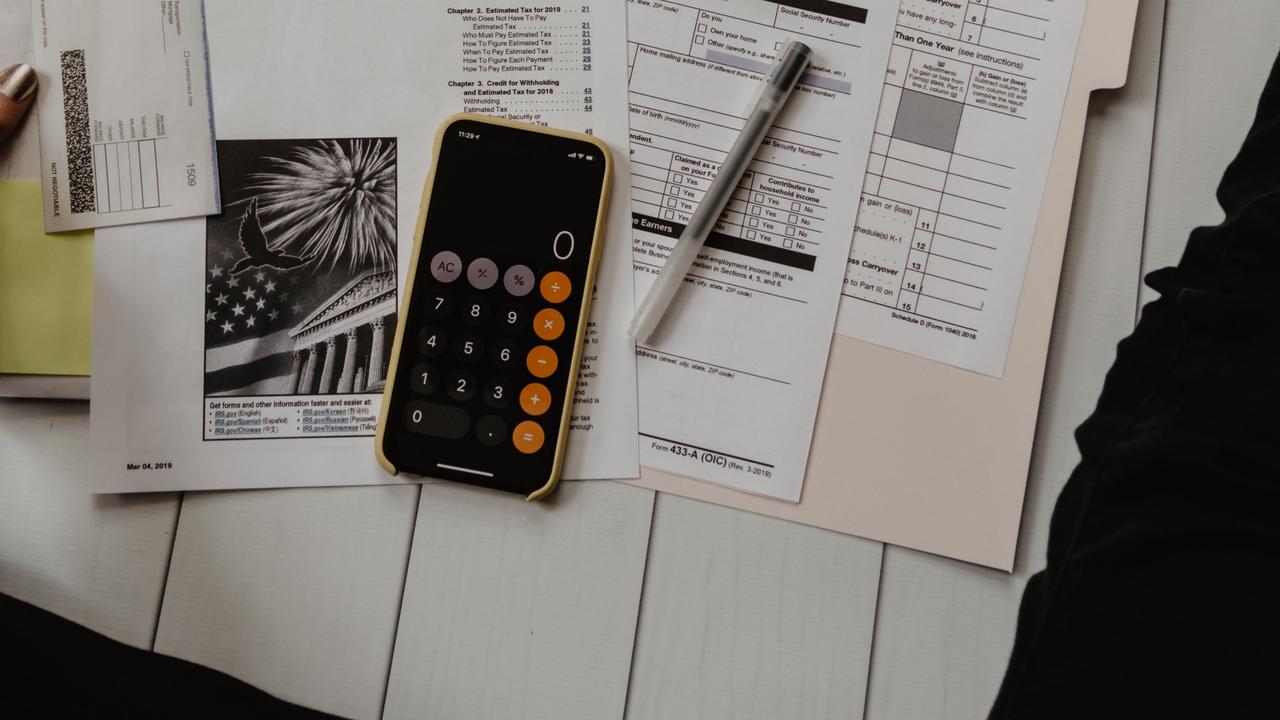Common habit that could cost $628,000 in potential investments
It’s a habit that many Australians have slipped into and can’t get out of – but the repercussions could cost the average person $628,000.
In Australia, our savings rates have just tanked, with recent ABS data showing the household savings rate has declined to 6.9 per cent.
Saving isn’t easy, but if you can crack the code it goes a long way to driving serious money success over time.
For example, for a 30 year old earning the average Australian income of $92,029, increasing your savings by just 5 per cent and investing the money into shares would increase your wealth by $628,233 by age 60.
But it’s not easy.
There are three major savings challenges that make saving hard work and slow going. But, if you know what to look for and how to tackle your savings, this potential roadblock can become an opportunity to get ahead faster and easier.
Saving and spending habits
For me in the past, one of my bad spending habits was ordering dinner through a food delivery app. I’d go to work, and couldn’t be bothered to stop at the supermarket on the way home to pick up something I could cook for dinner, so I’d get home and order in.
I enjoyed the tasty food, and it was so easy, all done with a few flicks of my thumb and seven steps from my couch to my door to collect the food. Before I knew it, the habit was built.

But the result was that I was struggling to stick to my budget – each week there wasn’t as much money leftover for the other things I wanted to do, specifically building my travel fund and savings account.
It took some conscious decisions and careful planning, but ultimately, I made the decision that things needed to change. I then worked hard for the next couple of years on shifting my day-to-day money habits and behaviours in a way that made it easier for me to save and work to my budget and spending plan.
In the early days it was a real struggle, and I’d fairly frequently get off track. But over time, I shifted my lifestyle and the spending behaviour that came with it.
Instead of ordering in every night, I’d do some shopping and food prep. Four coffees a day turned into two, and then turned into a Nespresso machine in the office (I’ve since gone back to the cafe coffee but am now down to one daily).

And instead of catching an Uber to every destination I’d be a little more prepared and walk more.
These were all things that didn’t drastically reduce the quality of my life, but they did make a big difference to my ability to save. Today I find it easy to work within my spending plan, and I now allocate more money to travel and the bigger ticket things I get more real enjoyment from.
Changing your spending habits takes some focus and effort, but it doesn’t reduce the quality of your life, and the impact and financial opportunity in this area is huge.
The juggle
These days it’s easy for us to end up with a heap of different bank accounts, and get caught in the constant juggle, shifting money from one account to another, and hoping like hell that at the end of the pay cycle you’ve hit your savings targets.
More commonly, you haven’t – but the more accounts and steps you have in your banking, the harder it is to figure out where you went wrong.

If you want to be good at saving, you need to make your money management easy.
I’m a bit of a process nut, and I’ve found that having an automated money management system goes a long way to making saving easier. The more you need to manually do, the more you can get wrong. Automating as much as you possibly can will increase your chances of success.
This is a challenge, but also an opportunity to automate your savings success, save you a heap of time, and accelerate your rate of financial progress.
Finding balance
My definition of true money success is saving (and investing) at a rate you’re happy with while living the lifestyle you want. It’s important you get ahead with your money, but you also want to enjoy your life.
Finding that balance isn’t easy, because we’re naturally drawn to wanting more. If you spend more money you receive an immediate pleasure hit and more fun and enjoyment today, but you’ll save less.
Saving too little will give you more stuff today, nicer things and experiences, a bigger house in a nicer suburb, more travel, and you’ll have more shiny toys to play with. But you essentially end up trapped, working forever as a slave to your pay check.

When you save too much, you’ll make rapid progress getting ahead and you’ll replace your salary investing much faster. But when you get to where you want to be, it’s likely you’ll look back and regret wasting years you could have been enjoying more.
Balance is key. It’s also not easy to find.
A great savings plan is one that has you saving at a rate you’re happy with. The one factor that dictates how happy you should be with your savings rate is what that number means for your rate of money progress.
Saving more or saving less will increase or decrease your rate of progress. To find your ideal savings number, you should look ahead at the impact of different saving rates both today and into the future, aiming for a savings number that gives you the rate of progress you want.
The wrap
Saving isn’t easy, and if you don’t take the time to nail your savings, your money progress is going to be hard fought and slow going.
But the results are worth it. When you nail your saving and spending habits, eliminate the juggle and find balance, you immediately accelerate your rate of financial progress, make your money management easier and get more peace of mind from feeling in control.
Ben Nash is a finance expert commentator, podcaster, financial advisor and founder of Pivot Wealth, the host of the How to be Successful with Money podcast, and Author of the Amazon best-selling book Get Unstuck
Ben runs regular free online money education events to help you make better money choices and get ahead faster. You can check out all the details and book your place here.
Disclaimer: The information contained in this article is general in nature and does not take into account your personal objectives, financial situation or needs. Therefore, you should consider whether the information is appropriate to your circumstances before acting on it, and where appropriate, seek professional advice from a finance professional.






